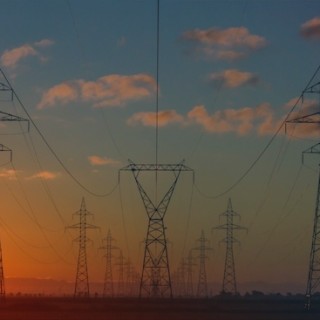Wyniki wyszukiwania
22 results for query Capacity market
Reports(5)
-
Ensuring reliability of the power system and capacity mechanisms

A stable and reliable supply of energy is the foundation of national energy security, yet it should not burden end users with excessive costs. On the one hand, it is important to keep electricity prices low, as they are the driving force behind economic development and provide opportunities for industrial development. On the other hand, wholesale energy prices should be sufficient to maintain the generating fleet. Since wholesale electricity prices fell to the lowest level in years, concerns have arisen over ensuring an adequate level of capacity and securing stable power system operations in Poland.
28.10.2016 -
Elements of new market design for Poland

Both the European power sector at large and the Polish power sector in particular find themselves at a pivotal moment. Power systems are in transition, driven by commitments to continuing emissions reductions, growing penetration of renewables, and the need to provide affordable and reliable power.
17.12.2015 -
Capacity market arrangements in Great Britain - lessons learnt for Poland

In 2014, the UK government introduced legal provisions for a capacity market in Great Britain. Many countries – including Poland – have since then followed the developments on the island. FAE describes the power market in Great Britain as well as measures to raise its security of supply. It also compares the volume of Great Britain’s capacity reserve with that of Poland. The goal of the project was to analyse the results of the capacity auction in Great Britain in December 2014 and to draw possible lessons for Poland in view of the special situation of the Polish power sector.
6.4.2015 -
Small steps to big changes | Impact of the "Clean Energy..." package on power sector

We are starting to implement new EU energy regulations. Will the "Clean energy for all Europeans" package heal the Polish energy sector and give it an impulse for development? How can the energy consumer benefit from the changes? In Forum Energii's report "Small steps to big changes", we analyse the provisions of the Package and their consequences for Poland.
12.9.2019 -
Capacity market for review | Analysis of the results of three auctions

The three capacity auctions for 2021-2023 are behind us. What is the result? Has it been possible to encourage manufacturers to make new investments? Does the capacity market support diversification of the mix? How much does the capacity market cost? And finally, do the new EU regulations concerning emission standards mean the end of the capacity market in Poland?
22.10.2019
Insights(15)
-
The meaning of the EC decision on Polish capacity mechanism

The year 2017 in the Polish power sector was marked by the preparation of the Capacity Market Act. The purpose of this regulation is to improve the profitability of Polish generators and to stabilize electricity supplies in the future.
7.2.2018 -
Spring is coming in the DSR

Last year, PSE launched the first edition of the DSR program. Its outcomes are positive. However, this year it could be much better. Apart from the second edition of the PSE program, the capacity market is also starting.
5.4.2018 -
Power deficit in the Polish power system in August 2015

The heat wave which affected the whole country from the beginning of August, in combination with the hydrological conditions of the main rivers, resulted in deterioration of the operating conditions of power generation equipment and power networks in Poland. As a result, PSE SA (Polskie Sieci Elektroenergetyczne, the Transmission System Operator) imposed various levels of limitations of power supply for industrial consumers until the end of August. Such measures were taken for the first time in many years.
23.9.2015 -
Capacity market auction results | What next?

On November 15, 2018 PSE S.A. (state owned transmission system operator in Poland) held the first auction as part of the new scheme of remunerating capacity, that is a capacity market. The auction secured 22.7 GW for 2021 for a total amount of over 5 billion PLN (over 1,2 billion EUR). The cost of the capacity scheme appears significantly higher than the 4 billion the Ministry of Energy assumed for the year.
19.11.2018 -
How much is 550 g after the end of the European negotiations?

Negotiations on the EU regulation on the electricity market were concluded on December 19, 2018. For Poland it was the last and most controversial element of the Winter Package. Since 2017, the European Parliament and the Council discussed how to formulate regulations introducing a CO2 emission limit of 550 g/kWh of electricity produced. They are to apply to the capacity markets.
21.12.2018 -
Power sector after the elections | Three tasks for the new government

The Polish energy sector is at a turning point. What will the next government find after the elections in the autumn? It will inherit not only electricity market, but also smog.
19.6.2019 -
The last auction of this kind...

The fourth capacity market auction was held on the 6th of December 2019. Although there were some long-awaited new projects, the Santa Claus gift (which the capacity market support could be) was offered primarily to the existing coal-fired units, which in most cases decided to modernize. They were allowed to participate in the auction for the last time, as the European Union regulations will not allow such participation from next year.
11.12.2019 -
Will the coronavirus slow down or speed up the low carbon energy transition in Poland?

The world is in chaos. The priority is to stop the spread of the virus and contain the crisis. A stable energy supply is crucial - it's hard to imagine what would happen if there was no power or heat supply now. The million dollar question however, how will the current crisis affect the energy transformation in the long term?
21.3.2020 -
Five energy projects that must happen in 2021

The future begins today, not tomorrow. The year 2020 was unusual in many ways, so many people will be relieved that it is now ending. But in terms of the energy transition, it was a watershed year. The European Union reached agreement on the European Green Deal. In Poland, the government and labour unions openly admitted that Poles need to talk about the end of the coal era. The energy sector in the country is at a crossroads and it is time for it to choose the right path for its further operation and development in 2021.
28.12.2020 -
NABE - the hibernatus of the Polish energy sector

In the film with Louis de Funès, a separate, unreal world was created for the titular hibernatus to make him feel comfortable in the new reality. With the National Energy Security Agency (NABE) that the government is proposing for coal power, it is similar. The ring-fencing of coal assets is necessary because they are making increasing losses, the power companies are in debt, and with the coal burden in the new reality they are running out of finance to invest. However, without a cost-benefit analysis for the economy and society, or an assessment of the risks, NABE, instead of unlocking the transition, may hibernate it and introduce chaos that will threaten Poland's energy security.
28.6.2021 -
From 2025 coal will leave the Polish energy system in waves

Poland’s energy sector is entering a period of major turbulence. The immediate question is the continued operation of the Turów power station since the EU Court of Justice recently ordered the suspension of lignite mining there. This is just the beginning of the problems. After 2025, when public support ends, the first 8 GW of coal capacity may leave the Polish system, and a little later, another 6 GW. The power plants will be shut down due to age and costs. Observing the government’s actions, one can get the impression that all hope lies in the proposed National Agency for Energy Security . Yet, this is a side discussion because no change in ownership structure will improve the situation of the failing coal power industry. Instead, difficult decisions must be made, and the possibilities of supporting the operation of coal-fired power plants with public money are already very limited.
27.7.2021 -
10 steps to overcome the energy crisis

The prices of coal, gas, and CO2 are reaching record levels while the price for electricity is galloping, causing panic among politicians, energy consumers, and institutions responsible for maintaining Poland’s energy security. There is a state of emergency in the Polish energy sector caused by, among other things, the situation on the energy source market, but not only. The country is also bearing the consequences of many years of postponing necessary modernisation decisions. It is time to take urgent actions that match the situation.
8.12.2021 -
The capacity market in Poland―more expensive than ever

Poland has already held six power auctions. Analysis of their results shows that this mechanism in its current form is not an optimum solution for the country. The capacity market has proved more expensive than anticipated, has failed to curb the increase in electricity prices and, in addition, has contributed to the petrification of the outdated and coal-based generation structure. The arduous task of plugging the coal gap has only just begun, which is why decisions on modernisation and on methods for supporting capacity up to 2030 must be taken urgently.
13.1.2022 -
Lack of transformation hikes energy prices, not climate policy

A recent information campaign led by energy companies and echoed by politicians, suggests that CO2 accounts for as much as 60% of the electricity cost. This message creates an impression that the cost of buying allowances amounts to 60 percent of the end users’ electricity bill. But this is not the case. It does a great deal of harm - it distracts attention from the fundamental problems of the Polish energy sector. It distances us from solutions that can effectively stop price increases. In this article - on the basis of adopted assumptions (presented in the annex) we present, among others, what energy prices for households are actually made of.
4.2.2022 -
Conclusions from the 7th capacity market auction - cleaner, but adequacy remains a challenge

The results of the seventh auction in the Polish capacity market clearly show the dilemma Poland has faced - existing high-carbon (coal) capacity can no longer be supported with this mechanism, while gas is risky due to the geopolitical situation. Although Polish energy companies have not completely abandoned gas projects, fewer appeared in the auction than previously announced. There is also clearly a greater variety of technologies than before - for the first time, contracts were granted to storage. The market is still expensive - for the second year in a row auctions ended in the first round and at the maximum price.
20.1.2023
Events(2)
-
Energy Innovation Hub | Aurora's outlook for Polish power market
3.7.2018 Forum Energii, ul. Chopina 5a/20, Warszawa
On July 3, 2018, Forum Energii inaugurated the cycle of meetings called Energy Innovation Hub. During these meetings, we will discuss trends and innovations in the energy sector together with group of experts. The main guests of the first meeting were Dr. Manuel Koehler and Hanns Koenig from Aurora Energy Research. They presented their forecasts for the development of the energy market in Poland after the introduction of the capacity market.
-
Panel expert meeting | How to give impulse to new investments - experience of Poland and Great Britain with the capacity market
26.5.2021 zoom
The capacity market as we know it is about to end. From 1 July 2025 it will no longer be able to support coal-fired capacity. Together with rising CO2 emission allowance prices, changes in the power industry are accelerating, and we need a discussion: how to ensure security of supply by 2030, how to fill the coal gap and how to reduce emissions cost effectively. In this context, an important question is whether the capacity market still makes sense, what are the alternatives or how to change it so that it fulfils its role. The Polish energy system needs new capacities, low-carbon sources, DSR, storage and renewable sources.